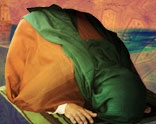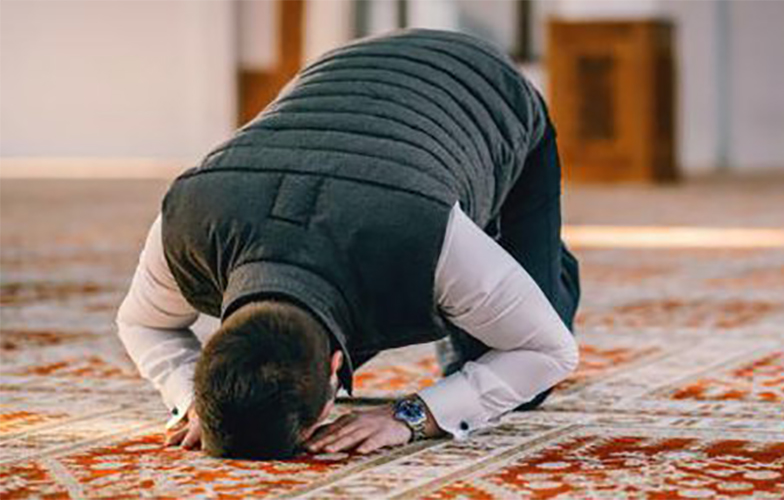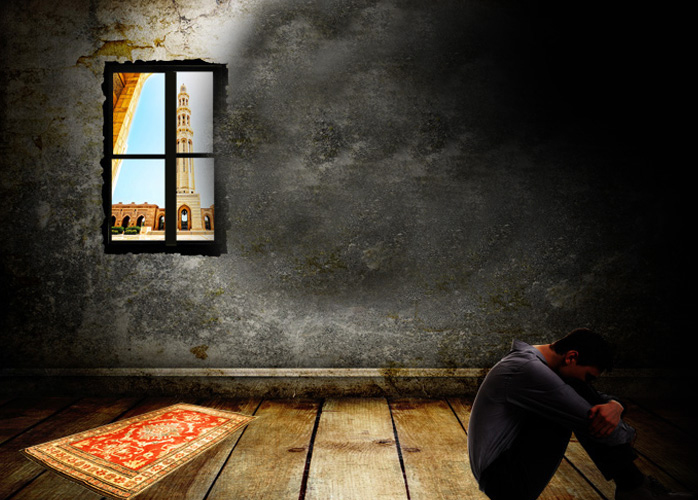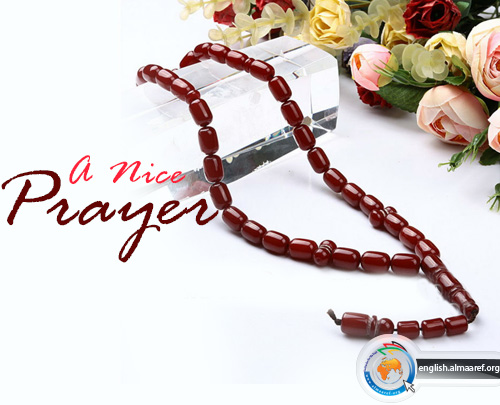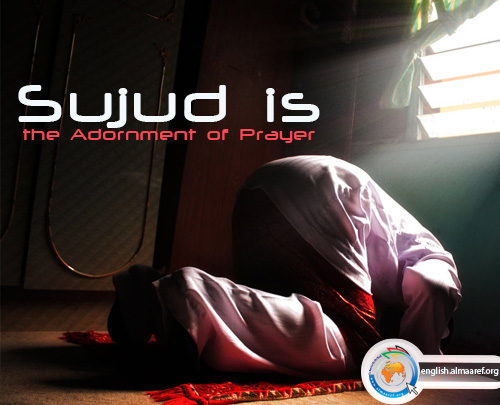The Judgments of the Doubt during the Prayer
The doubt during the prayer is of four kinds:
1- The doubt in the prayer itself
2- The doubt in the acts of the prayer
3- The doubt in the number of the bows performed
4- The inconsiderable doubts
The Doubt in the Prayer Itself
As regards the one doubting whether he has performed the prayer or not, there
are two cases.
The first case is that the doubt takes place after the end of the stated time of
the doubted prayer; then nothing is dutiful on the religiously responsible
person.
The second case is that the doubt takes place before the stated time of the
doubted prayer is over; then he has to perform the prayer he doubts. 1
In case he doubts, during the afternoon prayer, whether he has performed the
noon prayer or not, he must not consider his doubt if he is in the time stated
for the afternoon prayer. But if he is in the time common for the noon and the
afternoon prayer, he must build on that he did not perform the noon prayer and
adjust the intention of the prayer which he is at the meanwhile performing to
the intention of performing the noon prayer and complete it as the noon prayer
and then perform the afternoon prayer next to it.2
- In case one doubts whether there is still time or not, he must build on that
there is still time. In case he, for instance, doubts whether he has performed
the noon and the afternoon prayers or not and he does not know whether it is
still day or the night has fallen, then he must build on that it is still day
and thus perform the prayers.3
- The judgment of assumption is like that of doubt here. In case the religiously
responsible person assumes that he has performed the noon prayer or that he has
not, he must perform it taking into consideration the just mentioned conditions.4
- The person who doubts a lot concerning his prayer in itself must consider his
doubt.5
- The hypochondriac must not consider his doubt even if he is still in the
stated time of the prayer i.e. even if the hypochondriac doubts whether he has
prayed or not, he must build on that he has.6
The Doubt in the Acts of the Prayer
As regards doubting whether one has performed a certain act of the prayer or
not, being a basic element or a part, there are two cases.
The first case is that the doubt in the act takes place before starting with
another act succeeding it. Here, it is dutiful to perform the doubted act; for
instance, in case one doubts whether he has read Al-Fatihah or not yet has not
started with the recitation of the next chapter, he must recite Al-Fatihah.7
The second case is that the doubt in the act takes place after having started
with another act succeeding it. Here, nothing is dutiful on him, and he must
build on that he has performed the doubted act, as is the case when one doubts
while bowing whether he recited Al-Fatihah chapter or not. 8
Now, in case the doubter works according to the just demonstrated rule and then
realizes, whether during the prayer or after having done with it, that he did
perform the doubted act in origin, there are two cases.
The first case is that the act performed again is a basic element; then his
prayer is abolished. As is the case when one, for instance, doubts whether he
bowed or not yet has not started with another act, so he performs it; later, he
realizes that he did bow in origin. Here the prayer is abolished due to the
addition of a basic element.9
The second case is that the act performed again is a part; then his prayer is
correct.10
In case one doubts whether what he has performed is correct or not, he must not
advert to this. For example, in case one bows, prostrates, or recites, and after
having done with this act, he doubts whether he performed these acts correctly
or not, he must build on his having performed correctly.11
The Doubt in the Number of the Bows
Doubting the number of the bows of the prayer has two forms.
The first one is that the doubt takes place in the prayer which is made up of
two bows like the morning prayer or in the prayer which is made up of three bows
like the sunset prayer. Here the doubt abolishes the prayer wherever it takes
place.
The second one is that the doubt takes place in the prayer which is made up of
four bows. Here, there are certain judgments.
* What Can Not Be Made Up For
This group includes the doubts which can not be made up for and which
abolish the prayer; they are as follows:
A- The doubt between the first and the second bows
B- The doubt among the second, third, and fourth bows before doing with the two
prostrations
C- The doubt between the second and third bows before doing with the two
prostrations
* What Can Be Made Up For
The Case of Doubt Its Position How to Make Up for It
Whether 2 or 3 After having done with the two prostrations One must build on
that he performed the third bow, complete his prayer, and then perform one bow
while standing or two bows while sitting.
Whether 2, 3, or 4 After having done with the two prostrations One must build on
that he performed the fourth bow, complete his prayer, and then perform two bows
while standing and two bows while sitting, taking into consideration to perform
the former before the latter.
Whether 2 or 4 After having done with the two prostrations One must build on
that he performed the fourth bow, complete his prayer, and then perform two bows
while standing.
Whether 3 or 4 At any position One must build on that he performed the fourth
bow, complete his prayer, and then perform one bow while standing or two bows
while sitting.
Whether 4 or 5 After raising one’s head from the last prostration One must build
on that he performed the fourth bow, complete his prayer, and then perform the
two prostrations of forgetfulness.
Whether 4 or 5 While still standing One must build on that he performed the
fourth bow, skip his standing, complete his prayer, and then perform one bow
while standing or two bows while sitting.
Whether 3, 4, or 5 While still standing One must build on that he performed the
fourth bow, skip his standing, complete his prayer, and then perform two bows
while standing and two bows while sitting.
Whether 3 or 5 While still standing One must build on that he performed the
fourth bow, skip his standing, complete his prayer, and then perform two bows
while standing.
Whether 5 or 6 While still standing One must build on that he performed the
fourth bow, skip his standing, complete his prayer, and then perform the two
prostrations of forgetfulness.
The Cautiousness Prayer
This prayer represents the bows which the doubter must perform after having done
with the prayer which he has doubt in its bows.
In case it is made up of one bow12, it has the following form:
1- Intention
2- Saying, “God Is Great” as the start of the prayer
3- Reciting only Al-Fatihah Chapter in a low voice as a dutiful cautiousness
4- Bowing
5- Prostrating
6- Bearing witness and bestowing peace
In case it is made up of two bows, it has the same form the morning prayer has
yet without reciting any chapter after Al-Fatihah chapter.
Its Judgments
- The cautiousness prayer is dutiful, so it is not permitted to abandon it
and thus repeat the prayer.
- The cautiousness prayer must be performed immediately after having bestowed
peace without any separating interval. In case one separates between the prayer
and the cautiousness prayer or abolishes the prayer in a way or another, it is a
dutiful cautiousness to perform the cautiousness prayer and to repeat the
prayer.
- There is no supplication in the cautiousness prayer even if it is made up of
two bows.13
The Two Prostrations of Forgetfulness
They are performed in the following manner:
1- Intention14
2- Prostrating immediately after the intention
3- Raising the head from the prostration
4- Prostrating once more
5- Raising the head then bearing witness then bestowing peace
It is preferred to say during the prostration, “In the Name of God and by
God, God’s Peace, Mercy, and Blessings be upon you, O Prophet!”
What For They Are Dutiful For
1- Talking forgetfully during the prayer
2- Forgetting one prostration, with the elapse of the position of making up for
it
3- In case one intentionally abandons them, he is sinful yet his prayer is not
abolished.
4- In case one abandons them, he must perform them when he remembers even if
after a long time.
5- They must be repeated as mush as the requiring issues are.
6- It is desirable to say the following extolment during the prostration, “In
the Name of God and by God. God’s Peace, Mercy, and Blessings be upon you, O
Prophet!”15
The Forgotten Parts
As regards the parts of the prayer, only the one prostration is cleared, in
addition to the bearing of witness as a dutiful cautiousness, after having done
with the prayer and before doing anything which abolishes the ablution. In
clearing them, they do not need to say, “God Is Great” and to bestow
peace; all is needed is to say the extolment of bearing witness and prostration.16
1- Tahreer Al-Waseela
[Editing the Means]/ Part One/ Page 198/ Question 4
2- Tahreer Al-Waseela [Editing the Means]/ Part One/ Page 199/ Question 4
3- Tahreer Al-Waseela/ Part One/ Page 199/ Question 3
4- Tahreer Al-Waseela/ Part One/ Page 198/ Question 1
5- Tahreer Al-Waseela/ Part One/ Page 200/ Question 8
6- Tahreer Al-Waseela/ Part One/ Page 200/ Question 8
7- Tahreer Al-Waseela/ Part One/ Page 200/ Question 1
8- Tahreer Al-Waseela/ Part One/ Page 200/ Question 1
9- Tahreer Al-Waseela [Editing the Means] / Part One/ Page 201/ Question 5
10- Tahreer Al-Waseela/ Part One/ Page 201/ Question 5
11- Tahreer Al-Waseela/ Part One/ Page 200/ Question 3
12- Tahreer Al-Waseela [Editing the Means]/ Part One/ Page 210/ Question 2
13- Tahreer Al-Waseela/ Part One/ Page 210/ Question 2
14- Tahreer Al-Waseela/ Part One/ Page 214/ Question 5
15- Tahreer Al-Waseela/ Part One/ Page 214/ Question 5
16- Tahreer Al-Waseela [Editing the Means] / Part One/ Page 212/ Questions 1 and
3


